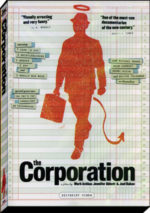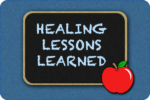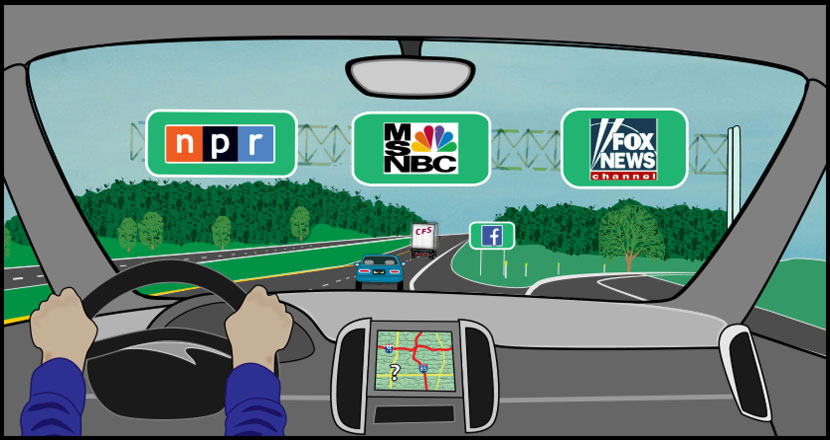
For better or worse, the term “Fake News” has become a common catch phrase. The positive effect is that hopefully more people are giving the news more scrutiny. The negative is that the term casts doubt on the confidence placed in all news outlets.
Yes, “fake news” – news that is patently false – exists. So does bad journalism and simple manipulation. But good journalism still exists. We mustn’t throw the baby out with the bathwater.
Losing faith in the press as a whole is a serious threat to democracy. Independentinvestigative journalism plays a critical role in exposing corruption and preventing tyranny. There would not have been a Watergate or Pentagon Papers without journalists doing the hard investigative work.
But with so much information available thanks to the internet and social media, how is a person supposed to sort through it all?
Media Watchdog Services are Not the Answer
With the recent rise of concern over fake news, a number of companies, such as Newsguard, have sprung up to solve the problem.
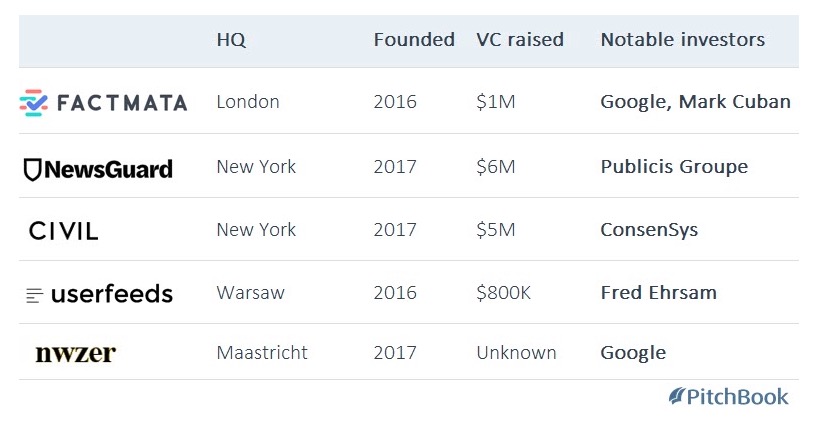
Though the intent of these services may be noble, they are not without controversy. This article about Newsguard is a good example of the kinds of concerns some may raise. As with any content evaluation, be it movie ratings or news story verification, there will always be concerns about bias and censorship. It is inescapable, given the wide variety of views and opinions.
The key question regarding all watchdog groups: Who watches the watchers? While these services can be helpful, they should not replace the work each of us must do to evaluate information ourselves.
Take Control of Your News
Citizenship in a democracy isn’t a spectator sport. Don’t passively let someone else tell you what to care about. Be an active, aware consumer of news. It’s not the easy path, but it is the difference between tyranny and a government of, by and for the people. That may sound intense, but it’s true. If we the people are going to self-govern, we need to be active not passive.
In this post, I offer some simple ways to be a more active and aware news consumer.
Why Do You Follow the News?
Take some time to reflect upon WHY you follow the news. There is so much going on in the world that we don’t have much control over. Even local news doesn’t have much actionable information. House fires across town, shootings of people you don’t know – what value do these stories have for you personally? When is the last time you took action based on the news? Aside from product recalls, burst water lines and traffic?
How often does local news report on the activities of your city council, school board or state legislature? Before a bill is passed. Do you know what matters are pending? When these law-making bodies meet? Same for national news. So many times we learn about decisions after they’ve been made.
Wouldn’t it make sense to spend more time learning about issues you can act upon? If news organizations aren’t providing the information, go online to your state and local legislatures and find out. What is likely to be of more value to you: an hour watching news others have chosen or 30 minutes online researching current activities of your state legislature?
Context is Critical
Nothing newsworthy happens in a vacuum. There is always a social, political and historical context that is key to fully understanding current issues. For example, “fake news” is really nothing new when you consider that propaganda has been used in warfare for centuries. What is new in the current era is the widespread ability of anyone to post a story on the Internet. The web also makes it easy to impersonate a legitimate news organization.
Unfortunately, the amount of context provided in a news story is often limited, especially in a radio or television broadcast covering many stories in its allotted hour.
Therefore, one of the most important things you can do to be an aware news consumer is to spend a little extra time learning about the context of the news. Yes, this takes some effort. But how many times have you spent an hour or two looking up an ailment or drug interaction on health-related websites. Or surfed the net on some random subject that crossed your mind. Digging into the political issues of the day is no different. It can actually be fun.
Here are some tools that can help make the most of your valuable time.
Context Tool #1: Wikipedia & Google Searches
The quickest way I’ve found to start learning about something is to do a Wikipedia search. Wikipedia is not infallible, but it is a great starting place. The better articles are filled with reference links. I especially like the references section at the bottom of the articles. It’s a good way to save time and focus your research instead of fumbling blindly through Google.
Context Tool #2: Maps
Just looking at a map can be enlightening. So much is happening in the middle and far east, yet we in the west don’t always have a good grasp of how the various players are situated geographically.
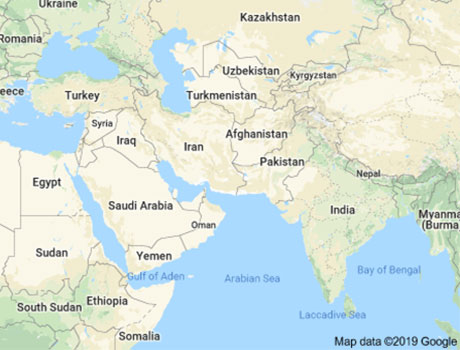
Check out these examples of using maps to better understand world news context:
40 Maps That Explain the Middle East
These 7 Maps Explain the Middle East
40 Maps That Explain North Korea
All I did to find these resources was enter the search term: “Map of Middle East”.
There are also resources for understanding historical context. That same search led me to this wonderful resource:
Teaching the Middle East: A Resource for Educators
Description from their website:
This resource was written by many of the best scholars in the field of Middle Eastern studies and created in partnership with the National Endowment for the Humanities and three University of Chicago units, the Oriental Institute, the Center for Middle Eastern Studies, and the eCUIP Digital Library Project.
Context Tool #3: Historical Documentaries, Podcasts, Audiobooks & Online Courses
You don’t have to go back to school to get a history lesson. These days, documentaries, podcasts, audiobooks and online courses make learning history enjoyable. There are no tests to take or papers to write. All you have to do is tune in.
This episode of The Hidden Brain podcast discusses the history of fake news itself:
It’s best to let your own curiosity guide you to resources. But here are a few suggestions:
- Shows like PBS’s Frontline take a more comprehensive look at current events.
- The Backstory Podcast was developed specifically to provide an historical context for the news of the day.
- The Great Courses, iTunes U, The Open University and even individual universities offer complete history courses online to view at your own pace. I’m currently listening to a Great Courses audio-course on Chinese history.
Context Tool #4: Longer Stories
Not everyone has time or likes to read, but there’s no escaping the simple fact that longer news articles and non-fiction books provide more detail than the nightly newscast. It really is worthwhile to take the time – at least on occasion – to read a more traditional newspaper or magazine.
Which newspapers? Though long-standing publications like The New York Times sometimes get criticized as being “liberal”, they have merit based on a long history of commitment to quality journalism. This article from Forbes magazine discusses journalism standards and reviews ten of the top names in news media:
10 Journalism Brands Where You Find Real Facts Rather Than Alternative Facts
If you dislike or don’t have time to read, there are alternatives. Radio shows like NPR’s Fresh Air often have investigative journalists as guests discussing their recent articles or books. Since many radio shows are also available as podcasts, you can go to their websites and browse or search shows on a particular topic. Audiobooks are also a great alternative. I got The Coming Storm by Michael Lewis (about control of weather data) by for free as an Audible member.
A Final Note: Media Is a Business, Your Attention is a Commodity
Remember that media companies are businesses selling a product and competing for your attention. In the corporate media world that relies on advertising revenue, the goal is high ratings – how many people stay tuned to their programs, spend time on their websites or subscribe to their print offerings. Even non-profit media sources have to stay in operation. They need to make sure their products result in new, renewing and higher-level donations.
Because media is competing for your attention, even news media products are just as much entertainment as information. Otherwise, they would just display text on the screen or have someone read the news in front of a boring screen. Instead, they use marketing strategies that often leverage emotion to hook people.
Try this experiment: next time you are consuming the news, pay attention to your emotional state. Are you fearful? Angry? Happy? How intense are those feelings? Are you able to resist the emotion? Monitor how emotionally triggered you are getting. This could be an indicator that the news provider is intentionally trying to keep you hooked on their product.
Try taking a break from it. Consume in a different format than your usual. If you normally watch, listen. If you listen, read.
Or go on a “news diet”: for a time – a week, a month – stop consuming the news. See how it affects your day-to-day life.
Bottomline: Be an Active and Aware News Consumer
Take control of your news – don’t let it control you!

